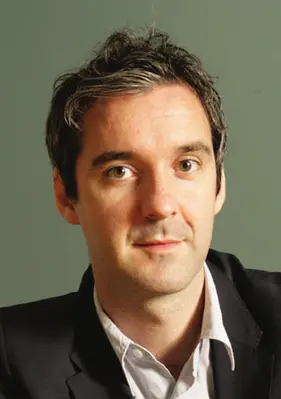 Across all industries social media is booming and many marketers are jumping on board, with social media spending on these tools expected to rise massively this year.
Across all industries social media is booming and many marketers are jumping on board, with social media spending on these tools expected to rise massively this year.
A recent study by Econsultancy and NetBooster UK found that amongst more than 300 UK in-house marketers and more than 200 ad agency employees, nearly two-thirds of companies plan to increase their social media spending within the next 12 months. However, measurement puts fear into many marketers as self-professed gurus promise magical numbers while there are precious few examples of legitimately robust measurement to guide the way. And the hotel industry is no exception.
Getting noticed
In order to make sense of the "social" world, the concept of customer engagement has come to the forefront. Engagement takes on many faces for social media evangelists. Whether it represents "likes," shares or comments on Facebook, or retweets on Twitter, marketers seek the approval of followers to measure the effectiveness of whatever it is they are trying to communicate. It's the marketer's duty to carefully monitor these valuable interactions and seek to correlate them to building a lifelong customer or at least a short-term "friend."
But it seems that many within the hotel industry are unconvinced by social media tools. Recent research launched by Swiss hotel management school, Ecole Hoteliere de Lausanne and RateTiger, revealed that many hotels across the globe are sceptical about the impact of social media on bookings. It was found that one in three of the hotels surveyed had no social media strategy in place, and only one in eight uses any form of social media as a marketing tool.
Make yourself transparent
However, there are hotel chains seeing value from engaging consumers and interacting with them to achieve a business objective. Social media won't work to the best of its ability without transparency.
Starwood Hotels and Resorts, which has more than 35,000 followers, uses Twitter and Facebook to respond to complaints and inform guest services. Each local W Hotel also has its own Twitter account, and connects to influencers through events like Foursquare scavenger hunts. This has done wonders for the brand in giving the brand personality and aligning it with the hotel's unconventional positioning. Beyond this, Starwood allows guests to post honest reviews directly on the site via tripadvisor.com. This gives consumers a reason to trust the brand. Yes, transparency can draw attention to negatives in a business but without it, potential new followers would feel removed. Just take the recent blunder made by London's Hoxton Hotel that recently unleashed its website-based promotion with a 500-room sale which sold out in under a minute. This led to a backlash on Twitter and Facebook from fans with disbelief that 500 tickets had been sold so quickly. Taking a look under the surface, the tool would certainly have driven up brand recognition and the bad comments were also balanced with the positive comments from fans that were able to get a room.
There are plenty of hotels that are seeing the benefits of a social media engagement programme. A good example is Hilton Hotel's premier loyalty scheme, HHonors, and its "Fast Ways to Free Stays" promotion, which offered members new ways to redeem their HHonors loyalty points. To promote their new products, they launched a social media treasure hunt. Participants in six cities were invited to uncover clues on Twitter and Facebook, and the first 100 people in each city to correctly complete the treasure hunt won a certificate for a free night at a Hilton Worldwide property.
As a result, they gained thousands of new Twitter and Facebook followers and fans, received millions of Twitter impressions and got more than 100million media impressions. Hilton Hotels was engaging with its customers in a more personal, direct and customised way and carving out a clear brand identity for themselves as a result.
Other uses for social media
HR objectives can be reached through social media tools too. Marriott is looking to hire around 20,000 people in China by 2015, to staff 40 new hotels it plans to build. In June, the company launched a promotional campaign in China using Sina's Weibo, a Twitter-like Web-messaging service. More than 30 of its Chinese hotels made videos about themselves, and shortlisted videos were featured on the company's Weibo page. By July, the company had received more than 1,000 more applications for jobs in that market than it does in a normal month. The hotel group is also planning to launch a social game on Renren later this year - often considered as China's Facebook - that allows users to virtually manage a restaurant as a way of getting more young Chinese people to familiarise themselves with the concept of running a hospitality business. Marriott is clearly exploiting the channel to engage as a responsible employer.
Social media certainly is not easy to measure, so it's no surprise that hotels remain unconvinced by its real value. However, it is possible and it can be rigorous, even beyond the ever-ridiculous 'friend' counting. What needs to be established from the outset is what the brand is setting out to measure and then develop activity that has relevant controls and tests to prove this value. There is unfortunately no one silver bullet to measure something so multi-faceted but it is quite straightforward to get indicative results by using traditional, established measurement methodologies in order to report against their specific business objectives effectively.
There may be scepticism within the hotel industry that social media is just a 'toy' but as we can see, some of the biggest hotel brands in the world are entering the game to drive up brand awareness and engage at a more personal level. If measured well, hotels will see the value themselves with open eyes.
















